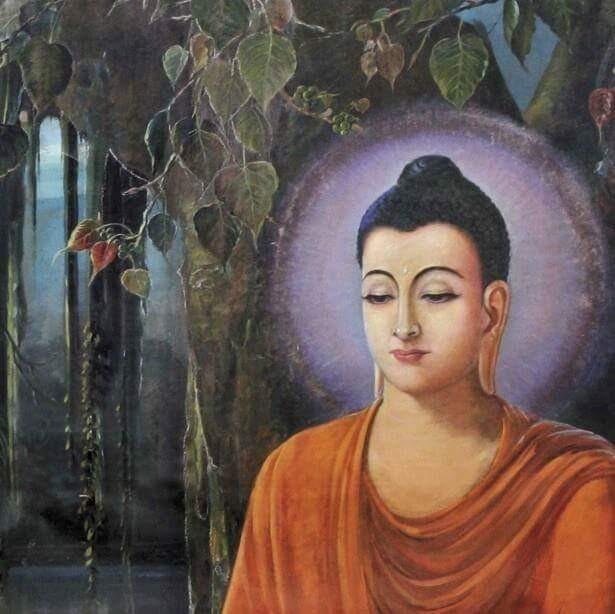The Buddha is called Araham because he is worthy of homage by the greatest of men, devas and brahmas;
The Buddha is called Sammasambuddha because he knows all things fundamentally and truly by his own perfect wisdom;
The Buddha is called Vijjacaranasampanna because he is endowed with supreme Knowledge and perfect practice of morality;
The Buddha is called Sugata because he speaks only what is beneficial and true,
The Buddha is called Lokavidu because he knows all the three worlds;
The Buddha is called Annuttropurisa dammasarathi because he is incomparable in taming those who deserve to be tamed;
The Buddha is called Satthadeva manussana because he is the Teacher of devas and men;
The Buddha is called Buddha because he makes known the Four Ariya Truths;
The Buddha is called Bhagava because he is endowed with the six great qualities of glory.
🌷 'We will have perfect confidence in the Dhamma reflecting that:
The Teaching of the Bhagava, the Dhamma, is well expounded;
Its Truths are personally appreciable;
It is not delayed in its results;
It can stand investigation;
It is worthy of being perpetually borne in mind;
Its Truths can be realized by the Ariyas individually by their own effort and practice.
🌷 We will have perfect confidence in the Samgha reflecting that:
1. The eight categories of Ariya disciples of the Bhagava, the Samgha, are endowed with the noble practice,
2. They are endowed with straightforward uprightness;
3. They are endowed with right conduct;
4. They are endowed with the correctness in practice deserving reverence;
(Being thus endowed with these four attributes-)
5. The eight categories of ariya disciples of the Bhagava consisting of four pairs are worthy of receiving offerings brought even from afar,
6. They are worthy of receiving offerings specially set aside for guests.
7. They are worthy of receiving offerings made for the sake of acquiring great merit for the hereafter;
8. They are worthy of receiving obeisance;
9. They are the incomparable fertile field for all to sow the seed of merit.
(BY MINGUN SAYADAW. -Edited and Translated by Professor U Ko Lay and U Tin U Yangon, Myanmar.) 